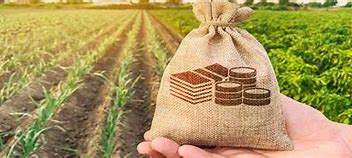Resources will be used to facilitate fertilizer purchases by 26 input dealers and cooperatives
07/25/2022

The Brazilian subsidiary of Norwegian Yara, one of the largest fertilizer suppliers in the world, has just announced the issuance of R$520 million in Agribusiness Receivables Certificates (CRA), the fourth operation of this kind in the country.
The resources of the issuance, structured by the securitization company Ecoagro, with the distribution of the fixed income bonds to investors coordinated by Banco Alfa, will finance the purchase of fertilizers by 26 input dealers and cooperatives. The multinational’s main purpose is to facilitate the acquisition of inputs from its client network, reinforcing its customer loyalty strategy in the Brazilian countryside.
This is the largest CRA operation that Yara has ever made in the country. The amount is higher than the total of the two operations conducted in 2021, when it raised, in total, R$ 335 million.
The demand for rural credit has increased this year, and money, like fertilizers, is more expensive in Brazil. “We understand that meeting our customers’ business needs goes beyond having the best solution in plant nutrition,” says Maicon Cossa, Yara’s commercial vice president in Brazil.
The focus is soybeans, but there are no restrictions related to crops. The movement ends up benefiting agricultural producers, who, in turn, get better payment conditions to buy inputs at the dealers. “Even though this is not Yara’s core business, and, for this reason, we seek partners for these operations, the idea is to contribute with the producer in seeking financial solutions to make cultivation feasible,” Mr. Cossa says.
According to him, Yara does not measure the universe of farmers that it reaches with the credit offer, since it does not control how resources are passed on in the distributor channel. The executive states, however, that the network of 26 dealers and cooperatives reaches mostly small and medium producers and that the action can reach “much more than 2.000 farmers”.
According to Milton Menten, CEO at Eco Securitizadora, the resource was taken by the borrower (input dealers) at interbank deposit rate (CDI) + 1.80%, which he considers a “very good rate at this moment of the market.” The deadline for repayment is one year, much longer than the one practiced by the fertilizer industry. According to the financial agents, the demand exceeded the offer.
“The engineering of the operation and the investor’s appetite offered credit under conditions that dealers would not have individually, says Augusto Martins, head of Corporate & Investment Banking at Alfa.
“The interest in agribusiness grows every semester because it reflects the advance in governance structures of the companies. To access the capital market, it is necessary to follow a rite and a series of conditions that the Securities and Exchange Comission (CVM) imposes,” Mr. Martins says.
Eco Securitizadora issued R$8.4 billion in CRA in the first semester, an amount three times higher than in the same period of 2021. Alfa, in turn, coordinated R$3 billion in operations in the electric, sanitation, and agricultural sectors in the first six months of this year, which represented an increase of 51%.
*By Érica Polo — São Paulo
Source: Valor International
